The content of the article
Some people absolutely can not tolerate natural curd. However, even those who cannot stand the taste of dairy products will want to eat ruddy and sweet cheesecakes. Cheesecakes are quite popular among adults and children. However, many lactating women often think about whether they can use cheesecakes during breastfeeding? How much cottage cheese in this form can be useful for a newborn baby?
About the beneficial and harmful properties of cheesecakes
It is known that the composition of the classic dish includes: eggs, sugar, flour, some salt, semolina and cottage cheese. The amount of ingredients in the cheese cakes cannot seriously harm a woman during lactation.
Cottage cheese
Cottage cheese is considered the main ingredient of cheesecakes. It is very beneficial for the health of lactating women. As part of the curd there is useful calcium, which helps restore the bones, teeth, nail plates and hair for women in the postpartum period.Indeed, during pregnancy, a woman in labor loses most of the calcium in the body, so after delivery, it is required to fill the body with this useful trace element. Due to the fact that calcium enters the mother's milk, strengthened the bones of the child.
Cottage cheese contains “coagulated” milk protein, which in this state is not an allergen for a newborn baby. Therefore, dishes made from cottage cheese, are easily absorbed by the body of infants. Food, consisting of protein, is a very important component for the health of a woman and her baby during breastfeeding. This protein becomes an important building foundation for the proper functioning of the body. In addition, the nutrients contained in the curd, help speed up the metabolic processes in a woman's body.
However, it is important to remember that nursing mothers can not eat only one cottage cheese. It is useful for the health of a woman, but is not able to replace all the essential needs of the mother in vitamins and trace elements. Cheesecakes can be a great wholesome dish that will help diversify the mother's diet. But do not forget about a balanced diet of breastfeeding women.Therefore, it is important that the composition of the menu giving birth included both animal and vegetable proteins. It is also important to eat fruits and vegetables, lean types of meat and fish.
Few people know that cottage cheese has an increased diuretic effect. If the mother's body suffers from edema, then the curd can be beneficial. In this case, doctors do not advise to use a lot of cottage cheese for women with problems of the genitourinary system and kidneys. An excess of animal protein in the body can cause calcium leaching from the body. This increases the load on the kidneys.
Eggs, flour and semolina
Nutritionists recommend lactating women to avoid eating chicken eggs in the first months of growth of the baby. The fact is that eggs are considered to be a strong allergen for the baby’s body. Therefore, before it introduces cheesecakes as a new dish into the diet of a nursing woman, it is worth trying each ingredient in advance. A woman in labor can afford to eat half a boiled egg in the morning for the first few days. And observe the behavior of the body of the baby gradually. If the baby is not allergic to eggs, then you can safely add them to your favorite foods.
As for flour and semolina, the basis of these products contains wheat, as well as protein - gluten. Unfortunately, this component can not be absorbed by every organism, but its intolerance by the organism is a rarity. Nevertheless, it’s not worthwhile to exclude the child’s negative reaction to gluten. As a rule, nutritionists advise to add products with the content of this protein into the dishes of a nursing mother only after the second or third month of the baby’s life. Although the content of these croup is rather small in relation to the curd, therefore, it is possible to exclude the negative reaction of the baby’s body to semolina and flour.
The main thing is to comply with the recipe during cooking and not to put too much flour or semolina. Nevertheless, caution should be exercised in this matter, especially in the first month of life of the little crumbs.
For the preparation of cheesecakes, breastfeeding moms best use flour of the highest grade, it has more useful properties. This flour does not undergo chemical refining and bleaching, as more of its cheaper varieties. But the harmful components that are contained in cheap flour, can penetrate into the body of the baby along with mother's milk and cause him harm.Therefore, if a woman decides to treat herself with delicious cheesecakes during lactation, it is important to choose only quality ingredients that do not harm the health of the mother and child.
Enter the cheesecakes in the mother's diet correctly
In order for a nursing woman to eat tasty and healthy cheesecakes without fear for the health of the baby, it is important to follow some advice from GW specialists:
- It is necessary to add syrniki to the ration of the woman in labor only by the second or third month of the development of the newborn baby.
- The first time should eat no more than one cheesecake for breakfast. For the first time, it is best to introduce this dish into the diet in the morning, so that mom has the opportunity to observe the behavior of the baby during the day.
- If the body of the baby normally took the new products, it did not show allergic reactions, problems with digestion or intestines, then mothers can gradually add cheesecakes to their diet. For a start, you can eat no more than three cheesecakes, which is about 100-150 grams at a time.
- If the baby has negatively perceived the new product in the mother's diet, then it is worth excluding cheesecakes from the diet for a while.After the baby is a little older, after three or four months, you can again try to enter the menu of cheesecakes.
- It is best to cook cheese cakes from natural and fresh ingredients at home, but shop convenience foods should be avoided altogether. As a rule, in the composition of purchased cheesecakes contain harmful additives.
Important! Too much abuse eating cheesecakes is not worth it. Even very healthy food can become harmful and cause problems with digestion, if you eat it in excess.
For cheesecakes, it is desirable to take home-made cottage cheese, which can be cooked by yourself. However, if there is absolutely no time for this, then breastfeeding moms should buy cottage cheese from trusted vendors. In this case, the product should be fresh, and its fat content should be no higher than 9%. Very fat cottage cheese can cause intestinal complications and colic in an infant.
In the cheesecakes should not enter too much sugar or berries. It is also better to abandon the shop jam, jam, condensed milk, liquid chocolate. Many of these sweet syrups can have harmful colorants, flavors and preservatives. You can replace them with low-fat sour cream or add some homemade apple jam.
For cooking cheesecakes, it is important to monitor not only the quality of the products, but also to pay attention to the methods of cooking. Nursing mothers are better not to fry cheesecakes in a pan with a lot of oil. This is very harmful to the health of a small child. It is better to cook cheesecakes in the oven or using a double boiler, this will make the curd dish more useful.
Video: the best recipe for cheesecakes

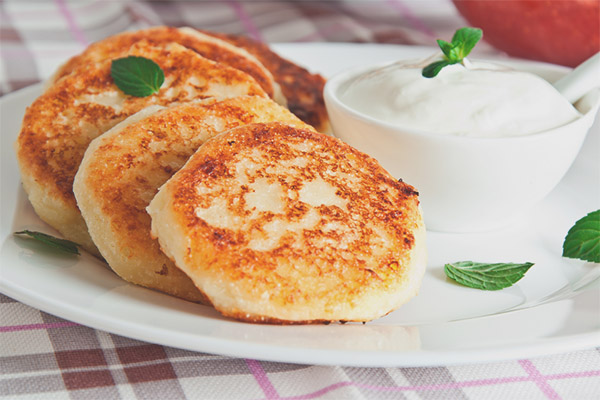
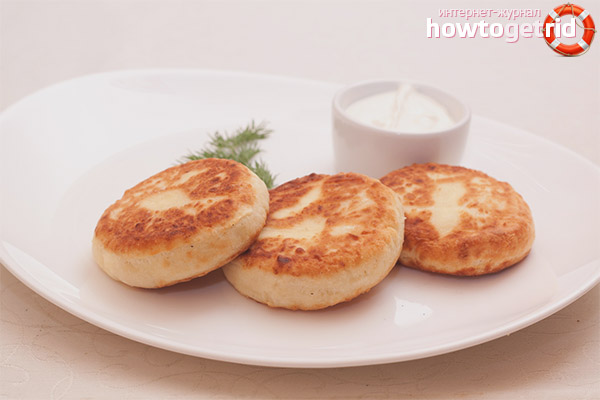

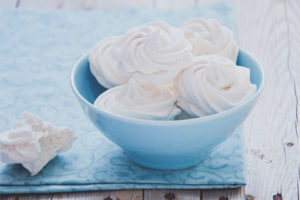
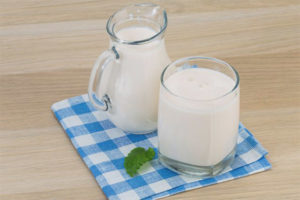
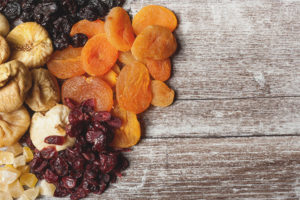
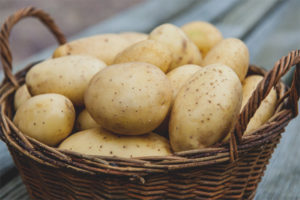
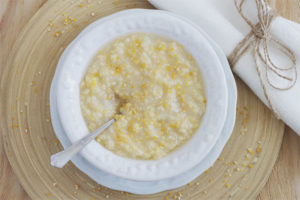
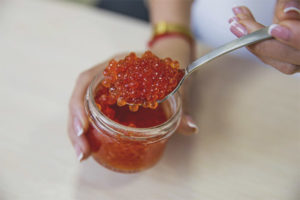
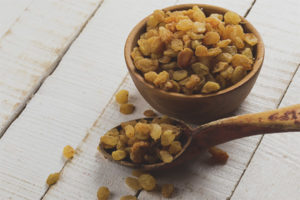
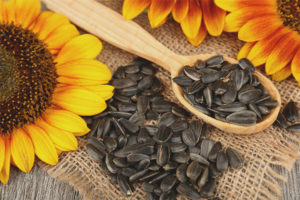
To send